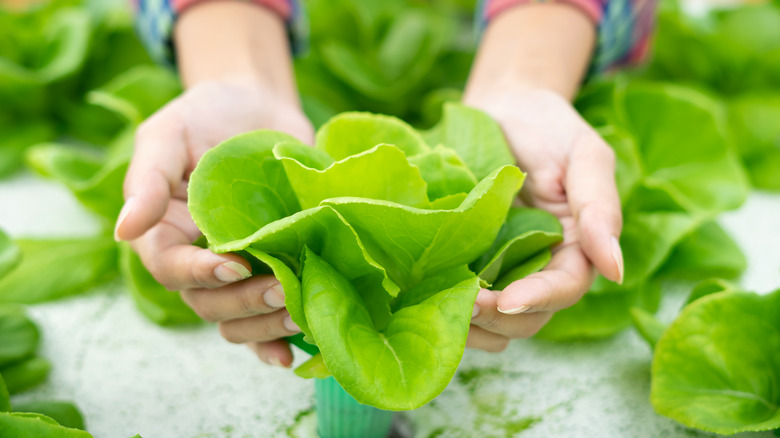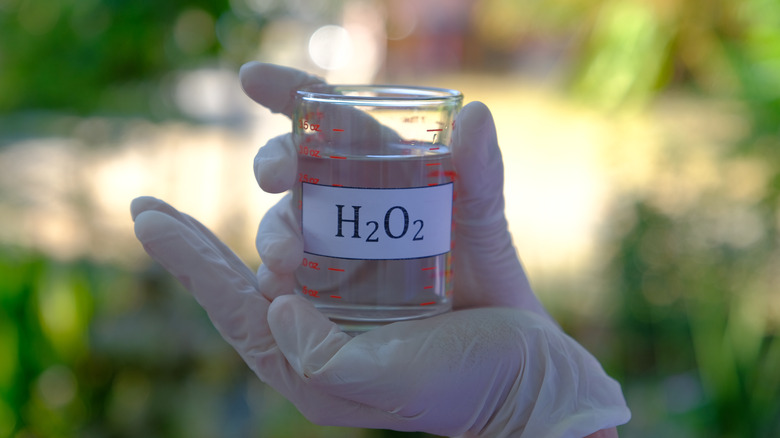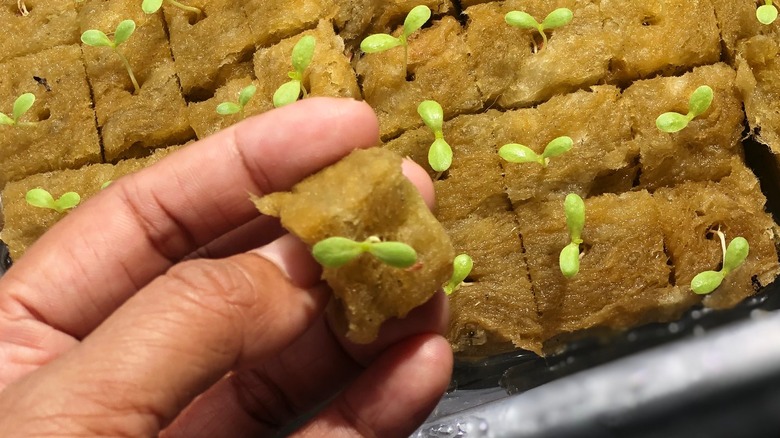The Essential Role Of Hydrogen Peroxide In Hydroponic Gardening
Hydroponic gardening is a great option if you want to grow vegetables, fruit, or herbs during the winter, or have little space to garden outdoors at home. It tends to be more efficient and even though it relies on nutrient rich water to grow the plants, it uses less water than you would growing in soil. Rather than using compost and topical fertilizers, you use liquid fertilizers to supply nutrients to your plants. There are over 30 plants that you can grow in a hydroponic garden. Despite all the benefits of growing a hydroponic garden, it doesn't come without its unique challenges. Fortunately, hydrogen peroxide plays a valuable role that helps keep the roots of the hydroponic plants healthy and wards off detrimental ailments.
Hydrogen peroxide is an often overlooked but integral element in hydroponic gardening. It's commonly used as a household disinfectant in medical applications or bleach for hair, clothes, and textiles. In hydroponics, hydrogen peroxide's unique properties help eliminate bacteria, mold, algae, and fungi that thrive in nutrient-rich environments and negatively impact not only plant growth, but your entire hydroponic system. Upon contact with the water, hydrogen peroxide breaks down into water and oxygen, which oxidizes the water and decomposes harmful microorganisms, ensuring the safety and cleanliness of the hydroponic environment.
Clean your hydroponic system
Hydrogen peroxide is a must have as a sanitizing agent in your hydroponic garden. However, most food-grade hydrogen peroxides are 35%, which is much stronger than you'll want to use on your plants or to clean your system. Instead, you'll want to use 2 to 3 teaspoons of regular 3% hydrogen peroxide to 1 gallon of water. Make sure you're in a well-ventilated area, and wear gloves and safety glasses before making the solution. It's an environmentally friendly option for your hydroponic garden because it decomposes into oxygen, leaving nothing else behind.
While hydrogen peroxide might provide immense benefits to your plants, it can also keep your entire hydroponic system clean and running efficiently. One advantage of using hydrogen peroxide is its ability to decompose harmful microorganisms. Regular use can keep your system running smoothly by preventing buildups of mold and biofilm that can clog your pumps, reservoir, and tubing. You can also eliminate contaminants by sanitizing your hydroponic containers and growing mediums with a hydrogen peroxide solution. This approach could help keep disease at bay and prevents compromising your hydroponic garden.
Use hydrogen peroxide to benefit your plants
Among the brilliant ways hydrogen peroxide can possibly benefit your hydroponic garden is its ability to increase seed germination. In addition to soaking your seeds in water, adding a little bit of hydrogen peroxide can help soften the seed's hull and allow it to consume more oxygen, speeding up the germination process. You can also use it to disinfect your seeds before germinating them. Soaking the seeds in the solution should decompose any contaminants that might infect your plant and others once it sprouts, potentially preventing unwanted disease in your hydroponic garden.
Once your seed germinates, hydrogen peroxide wins again by helping to stimulate the root growth of your plants. In hydroponics, you need oxygenation to promote healthy root development, as they need oxygen to breathe, and to prevent the roots from rotting and other oxygen-related complications. Because hydrogen peroxide boosts the oxygen levels and fights off bad microbes in your hydroponic garden, it enhances the strength and sturdiness of the plant, and benefits its root system. Without proper aeration, clean water, organism management, and the right temperature, root rot can quickly set in. You'll notice brown, decaying roots that are slimy and this will inevitably spread to nearby plants. Use hydrogen peroxide as part of your treatment plan for the fungal infection in your hydroponic garden, and to prevent root rot as well.


